This is a self-reflective photo series focusing on how individual's notions of feminism have changed over four years of college life. Many individuals process the change in their feminism through anecdotes of their time in college. The subjects of these photos contemplate the experiences and people that have played a major role in the evolution of their feminist ideologies.
Don't wanna be here? Send us removal request.
Photo

Coming from an upper class, conservative suburb of Indianapolis, my notions of feminism were limited. I knew I was passionate about equality for everyone and I knew there were gaps in access and resources for groups of people, but I didn’t have the language or the depth of knowledge to adequately challenge the views around me with which I disagreed.
The societal expectations from my hometown were and still are very apparent. Girls are expected to perform femininity and the same with boys and masculinity. I tried very hard to fit into this gendered role of compliancy. I did what was expected. I got good grades. I appeased my family, rarely took risks or went out of my comfort zone. When I came to Michigan, I floundered; I didn’t really know who I was or what I wanted. I took a variety of classes on everything from Buddhism, to the art of Hula, and one that focused on Jewish graphic novels, but nothing resounded with me more than my first women’s studies course: Perspectives in Women’s Health. In this class we talked about everything that I was passionate about. I was taught words and ideas that allowed me to effectively talk about social justice issues. I was encouraged to step outside of what I had known as “normal” and look at problems in a new light. I started to see that marginalized communities face a variety of oppressions due to structures within our society that inherently placed them at a disadvantage. I learned that feminism was multi-faceted and evolved alongside society
As I took more women’s studies and sociology courses I learned more about intersections of identities and the influence these identities had on the way individuals were seen by society and how those individuals saw the world. At first when coming to terms with my privilege, I was defensive. I didn’t choose to be white. I didn’t choose this privilege, so these oppressions faced by marginalized identities were not my responsibility. Continuing my education, scholarly and socially, I began to come to terms with the fact that my privilege makes me even more responsible to fight for equal rights for all people. I am placed in a position where voicing my opinions comes with little serious ramifications. It is my responsibility to speak out against injustices and place my self in situations that might make me uncomfortable.
One of the speakers in my senior capstone class told us that if we weren’t uncomfortable our coalition wasn’t diverse enough. Her words stuck with me. I think being involved in feminism means continually intentionally placing yourself in situations where you feel outside of your comfort zone. In order to expand your ideologies, you have to listen to individuals whose identities differ from your own. This conscious decision to engage in coalition building are steps that need to be taken and I plan on doing this more and more as my feminist identity continues to evolve.
When I initially was developing this project, I knew I wanted it to be self-reflective. I wanted the participants to consider the past four years and think about the growth they had experienced. This process required me to turn inward and consider how I have changed and adapted within the confines of societal expectations. “Four Years of Feminism” allowed me to invite my friends on a journey of self-reflection; here are their stories.
0 notes
Photo
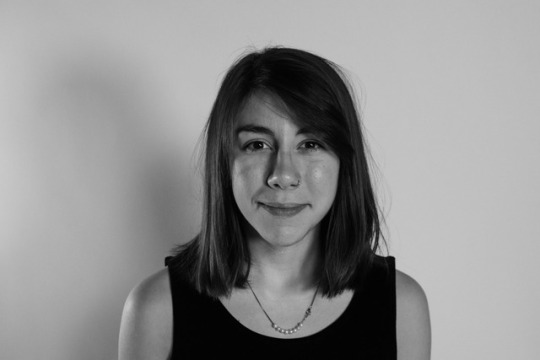
To me, feminism is about recognizing that to achieve equal levels of power, we must not focus simply on women having more. Men must have less. Feminism is about recognizing that systems of privilege and oppression give white cis-gender women incredible privileges when compared to women of color, transgender women and those who are non-binary. I didn’t know much about what the term white feminism meant as a freshman, but now I recognize that feminism that is not intersectional is not much different from white supremacy. Feminism is about recognizing that true equality requires liberation from oppressive structures that our society is built around.
-Carolyn Gearig
0 notes
Photo
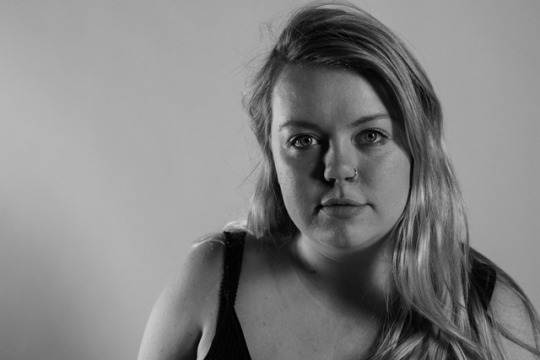
I've been thinking about my feminist identity, and honestly I've never recognized my spirit or my actions as feminist in nature. But when reflecting on the growth I have experienced in the past four years I am aware of a few things: the way in which my mother has impacted my experiences as an adult, the ways in which I've allowed men to define my body and my experiences and most importantly the ways in which I've allowed myself to love my body, nature and passions without hesitation in spite of these things.
The relationship between mother and daughter can greatly affect how a woman is able to place herself in the world, and while my relationship with my own mother has been tumultuous it has allowed me to define my own set of standards for living as a woman in a world where many believe I need a man. But as I've struggled with my own notions of how I can be powerful, I have relied upon men for a false sense of intimacy, which I felt my peers were experiencing. I have felt so strongly alone in many senses during college, and the loneliest I have felt is when I have been physically intimate with men who did not protect me. When I say protect I mean cherish or promote my well being in an encouraging and supportive way.
I still struggle to overcome such behaviors but over the course of college I have been able to recognize the moments in which I must stand-alone and find the strength in myself. I've found this to define how I choose to live my life as a woman and a feminist, in small steps slowly forging towards a more positive and healthy life.
-Cassidy Schmid
0 notes
Photo
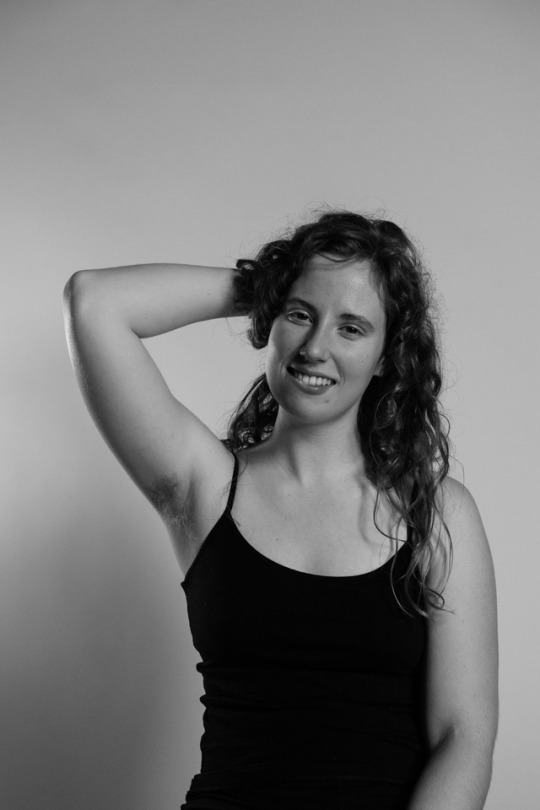
“Feminism” was a four-letter word in my hometown. I started college at 17 as a self-described “bad feminist,” because I liked cooking and wanted to have kids one day. I thought those things were incompatible with feminism.
Beyonce’s “Flawless” dropped that year. Chimamanda Ngozi Adichie is featured saying, “Feminist: a person who believes in the social, political, and economic equality of the sexes.” I could get behind that. I started identifying as a feminist after a few months on campus. Despite my newfound “feminist” title, I frequently reassured myself that I wasn’t one of those “crazy, man-hating, hairy bra-burning feminists.” I didn’t realize then that my defensive speech was throwing other women under the bus. My feminism during my freshman year was about my equality. It wasn’t about helping other women who weren’t as fortunate as I was to have been born white in the United States into a middle-class family. I thought that domestic feminist activism was useless. We already had constitutionally guaranteed equal rights, didn’t we? My feminism was really only about me.
My first boyfriend stalked me. He demanded I sleep with him. There were times when I was genuinely afraid of him. I was only 18. I thought that it was normal, that every couple had “troubles” like we did. I internalized a message sent to me by movies, magazines, and TV shows: that I was lucky to have a boyfriend. A message, which implied that as a woman, I should be grateful to be getting attention from men at all. I understood that my value in society was hinged upon whether or not I was worthy of male attention.
Thankfully, one of my older female housemates, Alex, recognized the manipulation I was blind to. She saw how he was hurting me. It took several weeks of her gentle counsel to realize that he didn’t respect me, to realize that I deserved better than to be afraid of my boyfriend. How could this happen? I held feminist ideals, didn’t I? Defining feminism simply as the “equality of the sexes” failed to address the socially ingrained male entitlement that fueled and normalized my ex-boyfriend’s abusive behavior. The liberal, “choice” feminism accepted by our patriarchal society and championed by make-up companies put ME at fault for my ex’s abuse. I had chosen to date him. I had chosen to stay with him. Coming to terms with and healing from my abusive relationship left me feeling alienated by the feminism championed by popular culture icons like Taylor Swift under the guise of “empowerment.”
Ultimately, the fun feminist ideology I’d been spoon-fed by popular culture was missing feminist practice. I could say that I believed in equality of the sexes, but I didn’t know that in practice, idealistic “equality of the sexes” wouldn’t permit sex-based violence against women. Alex helped me learn that I could demand that my body be respected, that my independence be respected. I didn’t call it feminism at the time, but that’s what she was teaching me.
My feminism frees me.
-Shannon Stone
2 notes
·
View notes
Photo
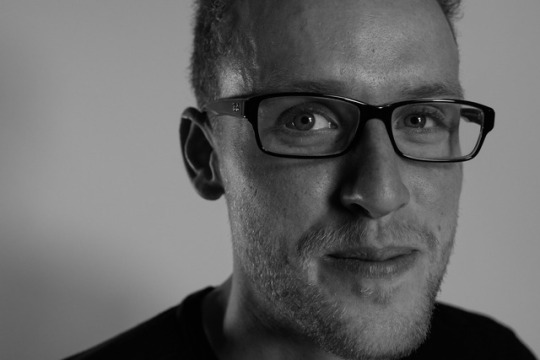
My freshman year I think I would have identified myself as a feminist, but I don’t think I lived according to that label. Throughout my freshman year, I wanted to be a cool fraternity guy and hook up with a lot of girls and drink and hang out with the bros. Basically I just wanted to be cool, and I think I was heavily influenced by society in thinking that hooking up with girls and in turn talking about girls I had hooked up with was the cool thing to do. I may have identified as a feminist, but I objectified women. Things I said around my friends influenced my actions toward women more than I realized.
I look at myself now and wonder how I was ever that kid. I think a lot of my development in college can be attributed to becoming a lot more confident in myself. Instead of participating in talk that contributes to the objectification of women, I’ve learned to silence it. I’m proud of the fact that some of my friends will start talking about the value of women based on their appearance and then they’ll turn to me, apologize, and stop.
I have one specific experience I remember as being a huge wake up call about the importance of eliminating micro-aggressions from my speech. I was the director of a student group for about a semester, and at the beginning of the semester, I would always address the team as “guys”. For example, saying “Hey guys!” when addressing everyone. Another former director of the club mentioned something to me about how “everyone” is a much more inclusive term, or even “y’all.” I think that experience has made me think more about how my words can have more meaning than I realize. Since then, I’ve thought a lot about using gender inclusive pronouns, especially when addressing groups of all genders.
I’ve been influenced by a lot of people that I consider to be very strong feminists throughout my college journey. I think being more in touch with women and people of the LGBTQ community has made a big difference. Just spending time with them has made me realize that those groups are more oppressed than I realized. My dad is gay, one of my 5 best friends from high school is gay, and some of my really good friends I’ve made over the last few years are gay too. I’ve also made strong female friends in college, especially ones that identify as strong feminists. I didn’t have that same experience earlier in my life.
I think being in a relationship for the last 2-2.5 years has also made a huge difference for me. For starters, my girlfriend’s family is much more feminist than my own family was growing up. In addition, I think my confidence in talking to women has increased a lot since I’ve been in a relationship, which has helped me develop stronger bonds with my female friends. These strong friendships result in more serious conversations about feminism, and they also make me feel more connected to women. I think I became more interested in being and living as a feminist after being educated and connected to the women in my life.
I think my outlook in general on the feminist movement will last throughout the rest of my life. I think maintaining my new outlook on feminism will eliminate jokes or off-handed comments that I might have made in the past. I also hope that I can help to eliminate similar types of talk from everyone I associate with after graduation. I’m going to strive to be a feminist in an industry, computer science, that struggles with sexual harassment and gender equality.
-Todd Goodall
0 notes
Photo
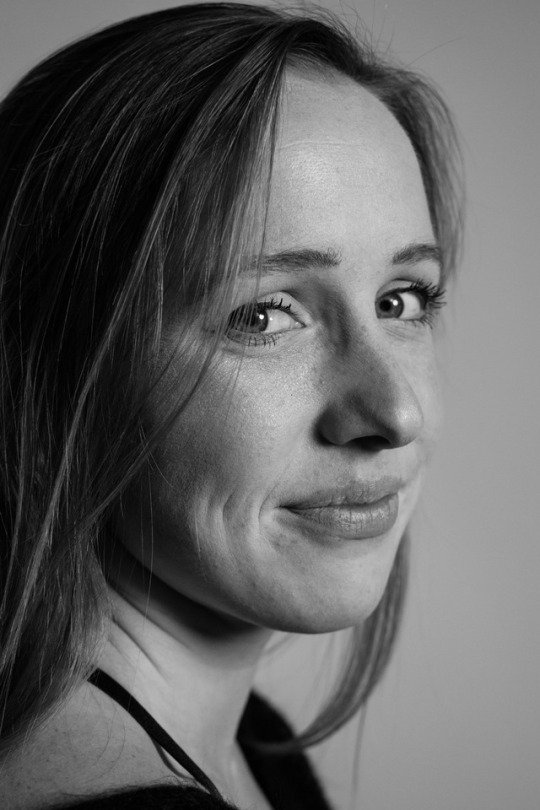
To be honest, I really had no idea what feminism was coming to college. I think I was blessed with a lot of powerful women and girls in my life growing up, but I never really had a phrase that supports and empowers all women as the term, "feminism", does.
Through my experience in college, I have had the honor of befriending more and more powerful and amazing women that really helped me to shape my perception of feminism and my identity as a feminist myself. My personal identity as a feminist is motivated by the desire for all of these women in my life--and for all women around the world--to have the opportunity to become all they are destined and deserve to be.
-Allison Shaw
0 notes
Photo
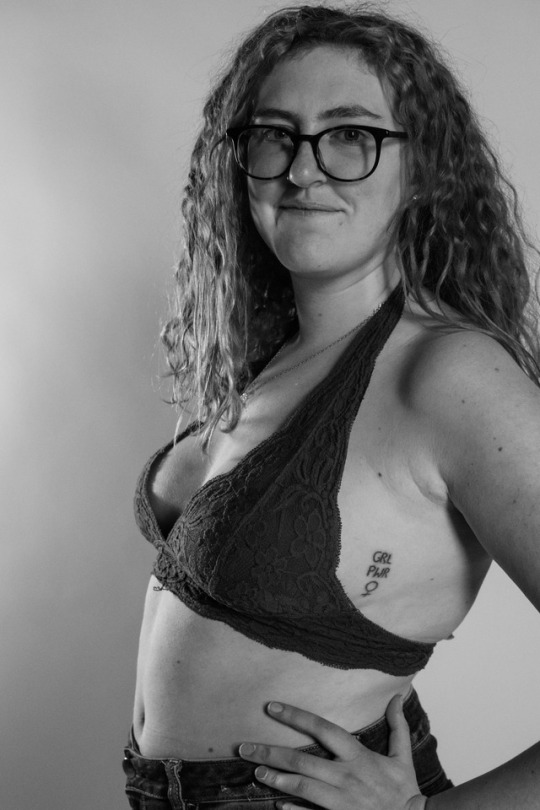
Brought up with a working mother, a liberal father, and a strong older sister, I have always identified with feminism. Yet, it has changed substantially throughout the years. In my early childhood, conversations around gender mostly focused on previous injustices - “look how far we’ve come?” “You know women used to not be able to go to school?” It was a problem of the past, and the effects it would have on my life were largely ignored.
Then I entered high school, in a new country with new friends. These friends were much more politically active than the ones before. They took me to Planned Parenthood rallies and discussed ~feminism~, the controversial, man-hating word. I started coming home and getting in fights with my brother, dad, and mom, about side comments and the role of women. But even here, my feminism was simple. I centered it on my world and how I was treated - was my female sports program getting the same treatment as the boys? Were men interrupting me in class?
And then I entered university. I took sociology and psychology classes and met passionate driven social justice advocates. They taught me that gender didn’t just affect the way people treated me, it affected the way I treated and saw myself. I noticed that when I went out dancing, I danced for men. When I got dressed, I dressed for the male gaze. I held my tongue in conversations, as to not fall victim to the ‘crazy girl’ stereotype. I saw the double standard in my friends, the boys seen as heroes for their ‘conquests’, the girls shamed as sluts for their one-night stands. I also began to understand the faults of ‘white feminism’, and the absolute necessity of standing up and advocating for ALL women, no matter their other identities. All of this culminated in a GRL PWR tattoo, to constantly remind me to stand up for others and myself.
I’m excited for my feminism to continue to grow in its radicalism, analysis, and inclusivity. Yay women! <3
-Florence Rivkin
3 notes
·
View notes
Photo
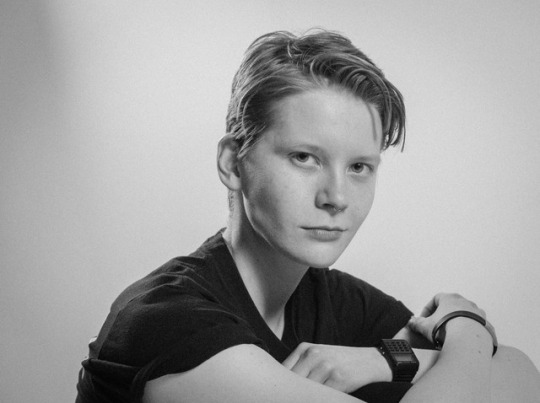
I used to associate solely female-ness with feminism. I used to skeptically identify as a feminist. I thought that externally upholding a feminist identity would minimize my trans identity. Now I realize that analyzing the intersections of identities is a common goal of feminists/feminist practices.
I have always been conflicted about the umbrella term, and now I am for different reasons. I am now less concerned about my own place in feminist spaces and rather would like to challenge the umbrella term identity and how many people will claim it while they participate in exclusive practices and contribute to oppressive systems.
-Lime Augustaitis
1 note
·
View note
Photo
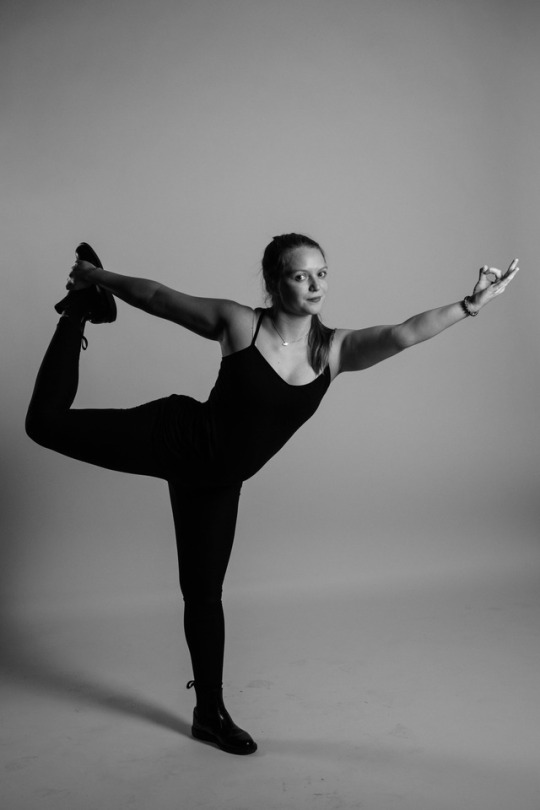
I grew up in a very liberal area, and never really felt the need to be or not be a feminist. Amongst my family and friends, there was no real noticeable inequality between women and men. Due to this, I found the stereotypical feminist to be incredibly irritating, crying about a problem that wasn't all that relevant in my day-to-day life. If you haven't witnessed or experienced something firsthand, be it sexism, racism, or homophobia, it can be hard to understand what all the fuss it about.
Doing my undergrad as a woman in engineering definitely changed that perspective. Despite all of the effort Michigan makes to push for equality and empower women, the culture is still not there just yet. To say that I am marginalized or ignored because of my gender would be a gross exaggeration, but I definitely started to pay more attention to the little things that I'd never noticed before. It has not been easy and it has been frustrating at times, to say the least.
About a year ago, however, I started practicing yoga. Yoga teaches that life is not easy, in both large and small ways, but also that I am not the only one struggling. Being in a class having to hold a difficult pose for several minutes seems tortuous, but knowing that everyone else is experiencing the exact same thing is quite humbling. Additionally, the success and camaraderie I have found in this smaller community have allowed me to grow outside of the classroom. This experience has strengthened my body and my mind in ways that have carried over into my academics and career development. I am now more self-confident as a woman in a male-dominated field, and I now recognize and can relate to that same confidence more easily and more frequently in my friends and colleagues. Nowadays, I realize that feminism isn't just about activism and attacking every injustice as it comes (though that does have its place). Sometimes, it is more about being strong in a field where you might not be the majority, or being strong for a community where you may not be directly affected, that can make all the difference.
-Rachel Shifman
0 notes
Photo
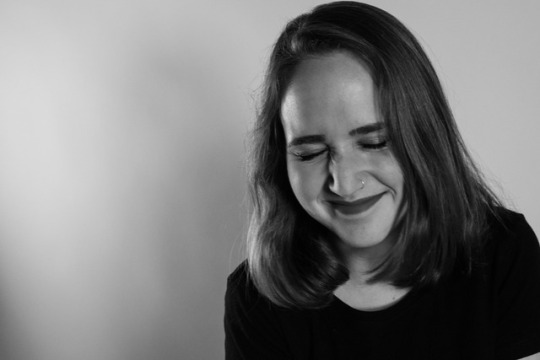
I came into college not really knowing what feminism meant. I identified as a feminist but I didn’t understand the depth and complexity of that statement. It wasn’t until I took Women’s Health freshman year that I began to comprehend the ways in which gender, race, and class intersect to dictate social hierarchy. I remember reading “Nasaan Ka anak Ko?” by Patricia Justine Tumang, a piece which details the Tumang’s experience with abortion and the circumstances that led to it. I remember crying as I read, feeling the weight of my body, my womanhood, in a new way. After that course I decided to major in Women’s Studies, to continue studying feminism and power, and to expand my understanding of feminism beyond my personal lived experiences.
A particularly salient experience for me in the development of my feminist identity was studying abroad at the University of Cape Town. Up until that point I had developed my understanding of my identities in the context of Michigan. I had spent so much energy trying to understand the meaning of my race, gender, class, ability, etc. and it wasn’t until I moved to Cape Town that I realized how dependent those meanings were on the context of Ann Arbor, a city I had lived in my whole life. Suddenly I was uprooted, and found myself roaming around campus feeling a profound sense of confusion. I felt deeply ignorant of the politics of my body. I did not understand what meaning my white, western woman body brought to each space I entered. I knew these identities meant something different in South Africa then they did in Michigan, but I didn’t fully understand how, which left me feeling self-conscious and naïve. The experience pushed me to critically interrogate the ways in which colonialism has shaped my life and the lives of those around the globe, and reminded me that my feminism is ever changing, growing as I grow.
-Maia Volk
0 notes
Photo
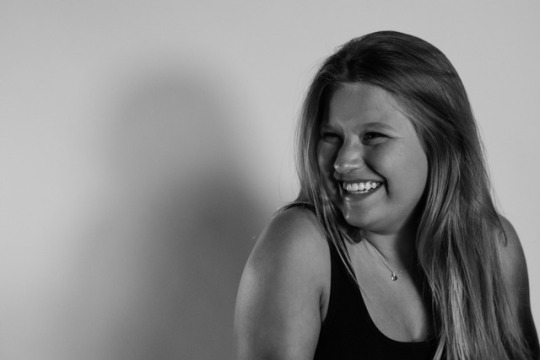
When I came to college I didn't even fully realize that feminism was a thing that I should be concerned with or consider. Because my mom was a powerful businesswoman, it never occurred to me that women could ever be in a position that was less than equal.
I think the largest thing that awakened me to the fact that inequality was real was through considering my own process in job searching. I heard time and again that my excessive energy made me seem "vapid" or "ignorant" and I couldn't help but think, "If I were a man they wouldn’t be regarding me this way." This was challenging for me to consider, that if my gender was different, people wouldn't necessarily interpret my personality in a negative way.
Thankfully, I am surrounded by an incredibly powerful group of female friends who I am more than confident in their ability to be successful. This constant, daily reassurance in their own strength and confidence also fortified my own, making me constantly aware of the power of female figures. With this constant reminder of the intelligence and raw force of the women around me and women in general, I am more confident than ever departing into the workforce.
-Samantha Raeder
0 notes
Photo
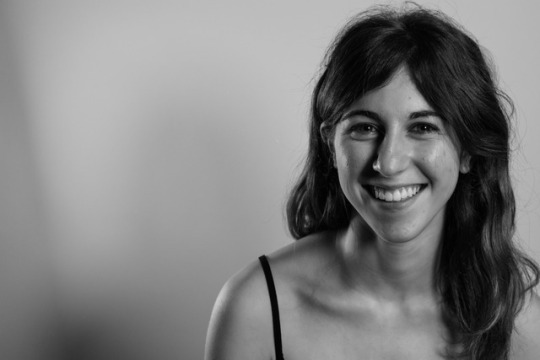
I've always considered myself a feminist, believing that gender should not be a barrier to equality. Trump's administration has challenged me to be more vocal and active in protecting and advancing women's rights.
I participated in the Women's March on Washington, which was an incredible, and empowering experience to be surrounded by generations of women fighting to ensure that all women and girls are respected, treated equally in the work place, and where gender does not limit their dreams or ability to succeed.
-Laura Seidman
0 notes
Photo
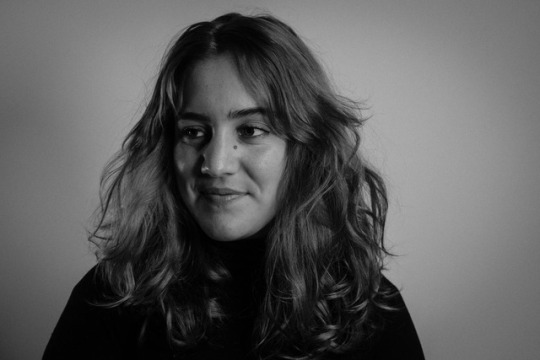
Yes, I identify as a feminist and coming to college, I called myself a feminist, but I don't think I really knew what it meant. Through women's studies classes, I learned how to talk the talk. Now I can have intelligent, informed, intersectional discourse.
It's much more accepted here to be a feminist than where I'm from (Nashville, Tennessee). Back home, feminism is still a dirty word (bra burning, man hating, etc).
Who has influenced your notions of feminism? Tara Wolf, my first women's studies professor. She got it. Roxane Gay, author of Bad Feminist. And whoever wrote the book The Feminist Porn Book and said you don't have to have PC sex!
I am for the girls. I will lift women up in my career.
-Talia Mayden
0 notes
Photo
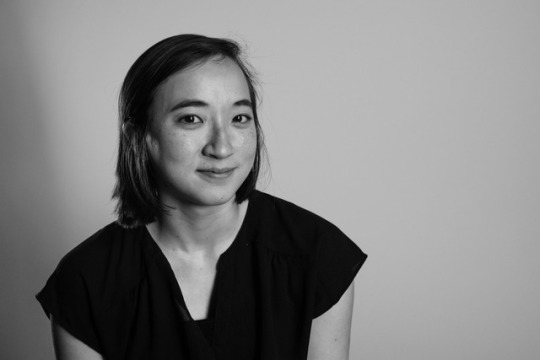
I never really associated myself with feminism when I started college, I guess I never really knew what a feminist was. It changed when I started rock climbing at the start of my junior year. Climbing is a predominantly male-dominated sport, and I found myself doubting my skills and my strength. I shied away from climbing with other guys if they were working on harder problems, even though I knew I was fully capable. It made me realize that without really thinking about it, I saw myself as inferior because I am a girl. I know that women are physiologically not the same as men, but that does not mean I cannot work towards the same goals. It doesn't mean I should shy away from challenges. This mindset has allowed me to become a better climber, and I know I will take this on to my future career and my lifetime of climbing.
-Christine Hathaway
0 notes
Photo
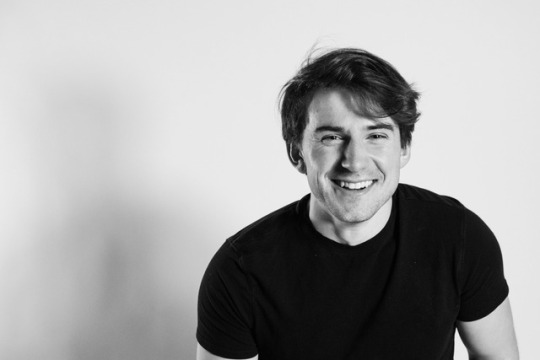
Having grown up in white suburbia into an extremely religious and conservative family, I came into college with little to no identity as a feminist. Everyone in my life was telling me women had a completely equal playing field, and anyone arguing otherwise was whining about nothing. Unfortunately, I bought into all that for at least a year or two into college until the people in my life slowly started proving otherwise. I don't remember really thinking about it until the summer of my junior year: a few people entered or took a bigger role in my life that I credit with my gradual transformation.
I started hearing whole different viewpoints that I never heard before, and honestly initially discredited, but overtime I saw the ideas had merit. They came to have merit in my eyes because I began to see real world examples of misogynistic behavior playing out, and then I began to look back on my life and many memories stood out. The way my high school friends talked (and still talk), and the way my parents spoke of gender roles subtly through my childhood. Also, raw statistics about the wage gap helped shape my new identity.
I think I can better explain the transformation through a few experiences of mine.
I started hearing about the orgasm gap in the summer of 2015, and that was right around the time I started having sex pretty consistently for a while. I remember it was pretty hard to get her to finish, and that was the most frustrating thing to me. It was totally unacceptable in my head that I get to finish but she wouldn't, and I got to work figuring out how to fix that. No need for details there, but point is I couldn't believe that people thought that was okay, and I still have guy friends that maintain it doesn't matter, but that was one of those things that got me identifying as a feminist.
More recently, I went up to Canada to visit my high school buddy with another friend and we went out to some dance club one night. It was super fun and the night was going well, but then I started noticing one of my buddies was playing grab ass with half the girls that walked by and I was shocked. I got pretty mad at him and told him to stop, but he kept doing it until one girl called him out on it. All the guys I was with were defending him saying that it's a compliment and all those tired lines we've heard before, and I was just so pissed at him and lost a lot of respect for him. I talked to him for a while after and like to think I changed his thinking a bit, but point is, that was another moment where I realized how I've changed and also further cemented these changes in perspective.
Last story, I woke up once in the middle of the night like 2 years ago, and I walked through the living room to go to the bathroom and I remember two of my female room mates that were on the officer board were talking in the living room. I was sitting on the toilet, and truth be told I was eavesdropping because I forgot my phone and I need some sort of mental occupation on the john, and the conversation I heard really made me kind of upset. You two were talking about officer board meetings for the ski team and how the guys on the board never listen to you and just cast aside any helpful ideas you came up with. Initially, I thought there was no way that was happening, but then I thought about it and paid more attention in the future and low and behold I noticed that kind of behavior kind of a lot. It made me really upset, and I swore to try prevent that kind of situation again.
I guess I never took much convincing, it just makes sense to me that everyone deserves the same amount of respect and consideration. All it really took was seeing and understanding misogyny with my own eyes. I expect I'm not all the way through my evolution as a feminist, and I'm sure there's still deep down some issues to deal with in my thinking, but all I can say I'll do in the future is keep an open mind and pay attention to fight for what's right.
-Andrew Carlone
0 notes
Photo
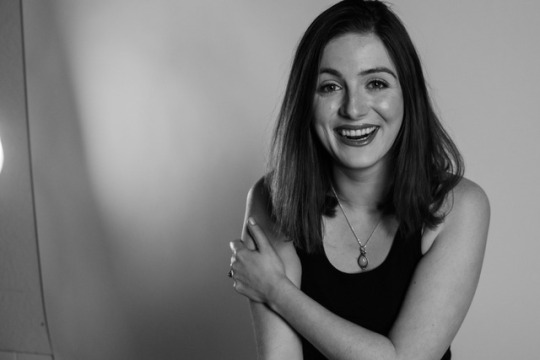
I think an initial experience I remember that changed my perspectives on feminism occurred in fall of 2014, my sophomore year English 298 class. Early in the semester, the professor told us that he - a middle aged man - was a feminist. He then proceeded to show Chimamanda Ngozi Adiche's video "We Should All Be Feminists". It was the first time I had seen the video and the first time I had ever heard a man call himself a feminist. On that day, feminism became this idea of inclusion that I never forgot about.
During my time student teaching, I taught a lesson on the women's suffrage movement of the 1800s. As a warm-up, I played the same video. Even three years and millions of views later, many of my eighth grade students hadn't seen the video. Despite this, many of the students came up to me after the lesson and asked what the video was called so they could watch it again, in full, on their own time.
I think these two parallel experiences highlight my ideas about feminism; it's a mindset of inclusion, growth, and self-reflection. As I go into my post-grad life, I hope to encourage my students to think the way that professor made me think at the beginning of my sophomore year.
-Martha McKinnon
0 notes
Photo
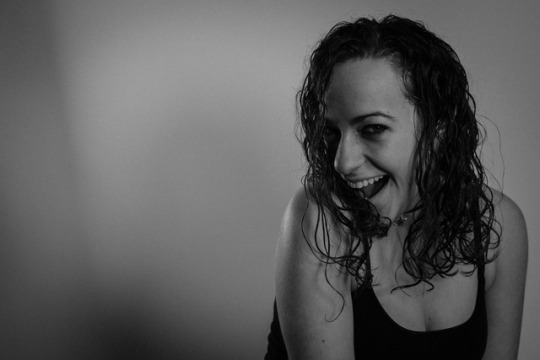
I think that the most basic and fundamental difference in my view of feminism coming into college and my view of feminism now is my realization that feminism is not simply about the fight for women's rights, but rather recognizing the importance of and fighting for the equality of ALL people and ALL identities.
I think one of the earliest experiences in college to help me shape who I am now and what I believe was my choice to partake in Dance Marathon (DMUM) and my continued involvement throughout these last four years. My freshman year self did not join DMUM thinking that I was about to embark on a feminist journey. I did not realize that I was about to spend my next four years fundraising and working to break down barriers regarding the stereotypes surrounding persons with disabilities and trying to truly understand my privilege as an "able-bodied" person, but now looking back on my experiences with the incredible children I've had the honor of meeting, I believe that the work we do with DMUM is a feminist issue.
While on the surface, DMUM raises money to fund pediatric rehabilitation therapies at local children's hospitals, at its core DMUM values equality. Someone maybe be disabled, but this does not mean that they are not capable. These kids are capable of the simple, every-day tasks that perhaps not everyone realizes they are, but also they are capable of greatness. As one DMUM mother once said, her daughter's greatest talent is the ability to love. I have seen this love firsthand, this unconditional and nonjudgmental love for all people, and I have seen the amazing things these kids are capable of, and the incredible things they are able to accomplish while simultaneously being constantly reminded by society of what they are unable to do and seeing public figures (such as our president) openly mock disabilities is awe-inspiring. Their ability to face the world with confidence and overcome the innumerable barriers that society has set for them is why I fight for equality. I now realize that this fight for equality for those with disabilities is a feminist issue, because the fight for equality for all people is a feminist issue.
Going forward, I hope I never lose the passion I have for DMUM, and I hope to broaden my fight to address equality for all identities. While the feminist cause is a fight too large for me to put all of my energy into all facets that need the attention, I hope to passionately and whole-heartedly fight for a few causes that I feel exceptionally strongly about, and that as a collective, we feminists can work toward our goal of equality for all people.
-Claire Laing
0 notes